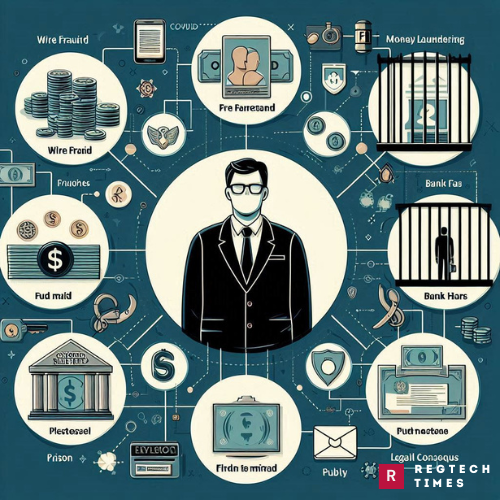In a recent legal development, Bill Dessaps, an Easton man and owner of an Abington-based used car dealership, has been charged with multiple counts of fraud related to the Paycheck Protection Program (PPP). The case highlights significant concerns over the integrity of pandemic relief efforts and the potential for abuse by individuals seeking personal gain.
Background of the Allegations
Dessaps is alleged to have orchestrated a complex scheme centered around fraudulent PPP loan applications. According to court documents, he and his accomplices allegedly misrepresented the dealership’s payroll expenses and employee count to secure an $836,800 PPP loan. These funds were intended to support businesses affected by the economic impacts of COVID-19.
Misuse of Funds
Instead of using the PPP funds for their intended purpose, Dessaps allegedly diverted a substantial portion to purchase a $750,000 home. The property was registered under the name of a close relative, purportedly to bypass restrictions imposed by Dessaps’ credit history, which would have hindered obtaining a mortgage on favorable terms.
Details of the Bill Dessaps Scheme
The indictment provides detailed allegations of financial manipulation to facilitate the home purchase. This includes the submission of falsified mortgage application documents, inflated income statements, and orchestrated financial transactions to mislead lenders about the relative’s financial capability. Dessaps and his associates are accused of creating a facade of financial stability to secure a mortgage that would otherwise not have been granted.
Legal Ramifications for Bill Dessaps
The legal proceedings against Bill Dessaps encompass charges of wire fraud, money laundering, and bank fraud. These charges carry significant penalties, reflecting the federal government’s commitment to prosecuting individuals who exploit public trust and misuse relief funds intended to aid businesses and individuals during crises. If found guilty, Dessaps could potentially receive sentences of up to 20 years in prison for charges related to wire fraud and money laundering and up to 30 years for bank fraud, along with significant fines. These penalties highlight the seriousness with which the legal system addresses financial crimes that exploit government assistance programs.
Enforcement Efforts and the Bill Dessaps Case
The case is part of broader enforcement efforts by the COVID-19 Fraud Enforcement Task Force, established to combat and prevent fraudulent activities associated with pandemic relief programs. This task force, comprising various federal agencies, aims to identify and prosecute individuals engaged in fraudulent schemes related to COVID-19 relief efforts. The task force’s efforts are crucial in ensuring that relief funds reach legitimate recipients and are not siphoned off through fraudulent means.
Impact and Public Trust
Cases like the allegations against Bill Dessaps undermine public trust in government relief programs designed to provide crucial support during times of economic hardship. The misuse of PPP funds not only deprives deserving businesses of necessary financial assistance but also distorts the intended purpose of taxpayer-funded relief efforts. Such cases highlight the ongoing challenges of balancing the swift distribution of relief funds with robust safeguards against fraud and abuse.
Reporting and Oversight
The Department of Justice encourages individuals with information about fraudulent activities related to COVID-19 relief to report them promptly. Reporting can be done through the National Center for Disaster Fraud (NCDF) Hotline or online complaint forms, facilitating the detection and prevention of further misuse of taxpayer-funded relief efforts. Transparency and accountability are essential to maintaining the integrity of relief programs and ensuring that funds are used responsibly and ethically.
The alleged actions of Bill Dessaps highlight the vulnerabilities inherent in emergency relief programs and the critical need for vigilant oversight and enforcement to prevent abuse. Upholding the integrity of relief efforts is essential to ensuring that funds reach legitimate recipients and serve their intended purpose of providing crucial support to businesses and individuals affected by the pandemic’s economic fallout.



